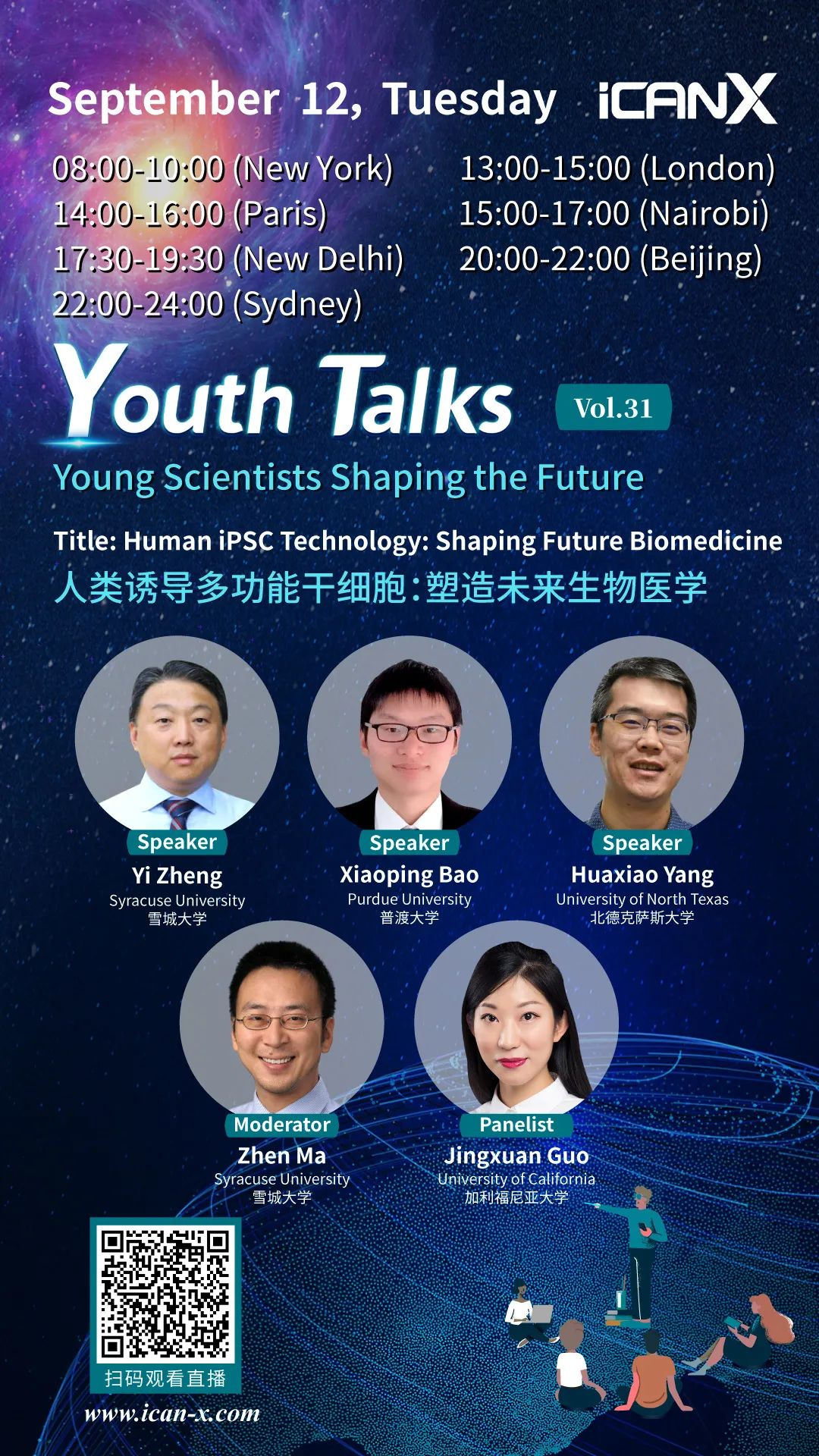Speaker: Yi Zheng Syracuse University
Time: 20:00-22:00 p.m., September 12, 2023, GMT+8
Venue: Scan the QR code to watch online
Abstract:
Early human embryonic development involves extensive lineage diversification, cell-fate specification, and tissue patterning. Despite its basic and clinical importance, early human embryonic development remains relatively unexplained owing to interspecies divergence and limited accessibility to human embryo samples. Stem cell-derived, embryo-like structures (or embryoids) allowing studies of early development without using natural embryos can potentially help fill the knowledge gap. However, most existing human embryoid systems rely on spontaneous organization and differentiation in uncontrolled environments without desired efficiency and reproducibility for mechanistic studies or clinical applications. Herein, we developed a microfluidic post-implantation amniotic sac embryoid (μPASE) platform which recapitulates landmarks of the development of the epiblast and amniotic ectoderm parts of the conceptus in a highly controllable and scalable fashion, including lumenogenesis of the epiblast and the resultant pro-amniotic cavity, formation of a bipolar embryonic sac, and specification of primordial germ cells and primitive streak cells. Transcriptome at the single-cell level of μPASE was profiled at different time points to reveal lineage diversification roadmaps of early human development. Given its controllability and scalability, μPASE provides a powerful experimental system to advance knowledge of human embryology and reproduction. μPASE could assist in the rational design of stem cell differentiation protocols for disease modeling and cell therapy, and in high-throughput drug and toxicity screens to prevent pregnancy failure and congenital disorders.
Biography:
Yi Zheng is an Assistant Professor in the Department of Biomedical and Chemical Engineering at Syracuse University, USA. He received his Ph.D. degree in Mechanical Engineering from the University of Toronto in 2014, and his Bachelor’s degree from Zhejiang University in 2007. Before he joined Syracuse University, he was a postdoctoral fellow and a research scientist at the University of Michigan, Ann Arbor. He has published over 30 papers in numerous high-impact journals, including Nature, Cell Stem Cells, Nature Materials, Nature Communications, Science Advances, etc. His research group currently focuses on the development sophisticated engineering approaches to achieve controllable in vitro platforms that recapitulate key developmental events during human embryo development, and application of these platforms for new discoveries in human development, disease etiology and regenerative medicine. His researches have been highlighted in Nature, Nature News, MIT Technology Review, NPR, BBC, Chemical & Engineering News, etc. He is a recipient of Robert M. Caddell Memorial Award, Natural Sciences and Engineering Research Council of Canada (NSERC) Postdoctoral Fellowship and Chinese Government Award for Outstanding Students Abroad.
Source: iCANX
